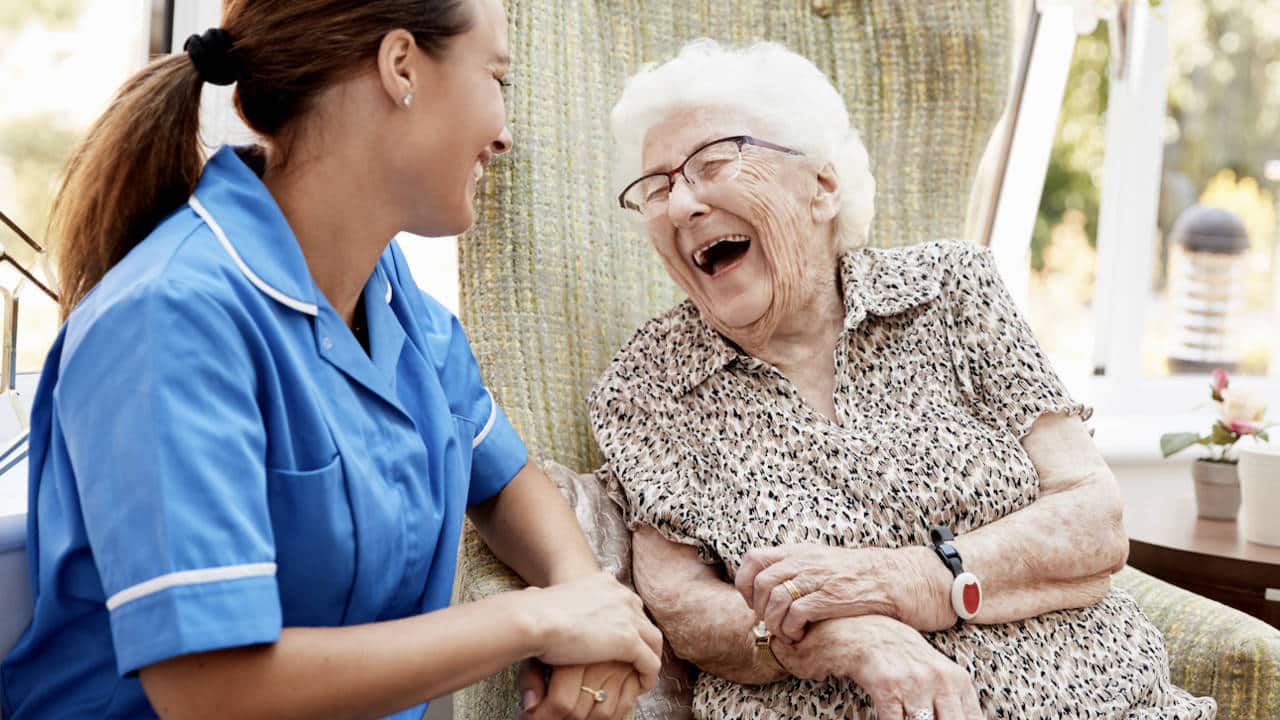We’ve all heard stories of older adults on lock down in their long-term care community. Maybe you’ve even seen the images of family members visiting their loved ones separated by windows or glass. Like a granddaughter sharing her engagement ring, a son sitting outside talking on the phone with his dad inside his apartment, or a couple presenting their newborn to the grandfather.
As a Psychologist who specializes with older adults and families, and who provides a lot of education and training to long-term care communities, I have the unique opportunity to see into the inner world of the older adult living in a long-term care community, the concerned family member, and the long-term care community and it’s staff as well.
Recommendations for Surviving the Pandemic in Assisted Living
The most important recommendation of all…
The most important recommendation for enhancing quality of life and improving care for older adults living in a senior care community is for everyone to work together as a team. The more we can work together as a team, the healthier everybody is going to be. The following recommendations give some strategies for supporting this recommendation:
Older Adults Living in Senior Care Communities
Common Experiences and Feelings During COVID-19:
- Sense of Powerless
- Feeling trapped/caged
- Fear of being a burden
- Feeling abandoned
- Forgotten about
Recommendations for Older Adults
- Look for moments of joy (family and staff want to see you happy)
- Engage in the activities that the staff are putting on
- Take care of your health- eat and drink regularly, get out of bed, get fresh air, work on a project, share stories of your life.
- Recall times in your life that you overcame hardship, think about how you persevered when times were tough
- Talk with your friends and family
Family Members of Older Adults Living in Senior Care Communities
Common Experiences and Feelings During COVID-19
- Helplessness
- Desperation
- Afraid
- uncertainty
Recommendations for Families
- Call your loved one regularly. Focus on “quality” phone calls. When you’re talking with loved one with dementia, consider some tips from my interview with Gary Glazner from the Alzheimer’s Poetry Project.
- Write letters or send care packages with photos (check and see if care packages are allowed at your loved one’s Senior Care Community)
- Maintain positive communication with the Senior Care Community. Make sure they have your most up to date contact information
- Identify one family member to be the primary point of contact with the Senior Care Community. With staff shortages, this can help reduce the burden on the Senior Care Community.
- Create a system for the family point person to communicate with the rest of the family and friends- Easy ways to do this are with a Facebook group or a group text.
Senior Care Communities
Common Senior Care Experiences and Feelings During COVID-19
- Overworked and Underpaid
- Caught in the middle
- Afraid
- Unappreciated
Recommendations for Senior Care Communities
- Create opportunities for sensory stimulation, social stimulation, and physical stimulation. Be clear about what these opportunities are and regularly communicate them with residents and families. For example: Daily outdoor time, assisting residents call their family and friends with zoom, healthy meal options, etc.
- Create a shared goal for residents to contribute to (listen to the podcast at timestamp 33:23 for examples)
- Communicate regularly with family – send a weekly newsletter with activities from the week and pictures of residents and staff. Include important information: like how you are maintaining safety by assessing staff when they enter their shift and leave their shift. Describe how you’re sanitizing equipment. Share your protocol for medical changes ( how will you communicate with families about medical changes). Talk about how you’re keeping residents engaged, if services like Physical Therapy or Occupational Therapy are still being offered, how family members can communicate with their loved one, and if meals or care packages can be dropped off or delivered.
- Talk with your residents and reassure them. Let them know that this is a difficult time and they are safe and in warm and loving hands.
- Praise your staff. Let them know that the work that they are doing is incredibly important.



